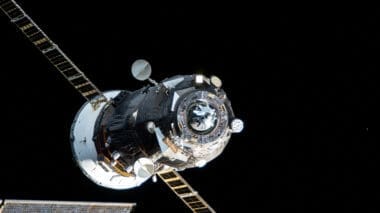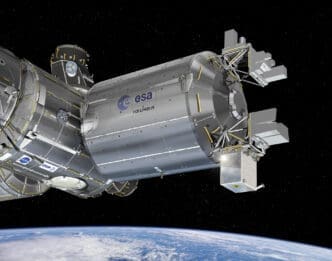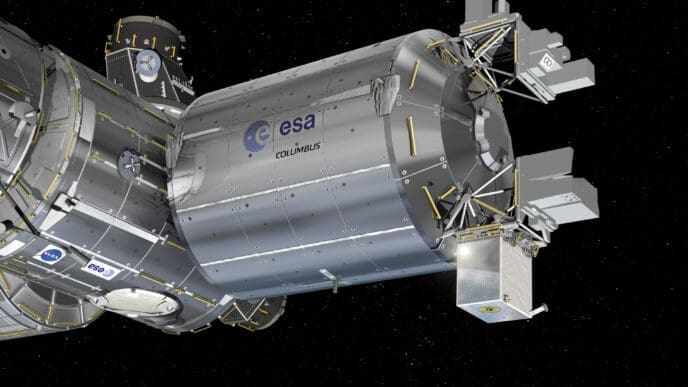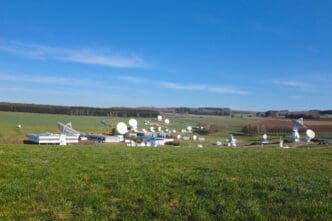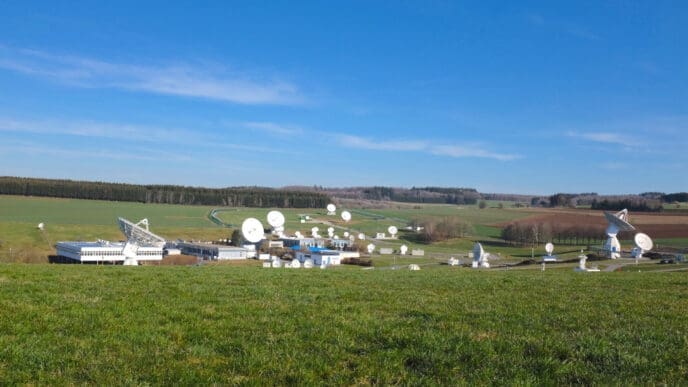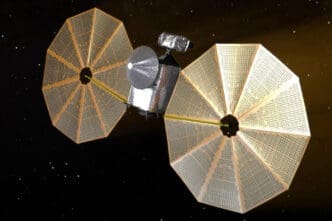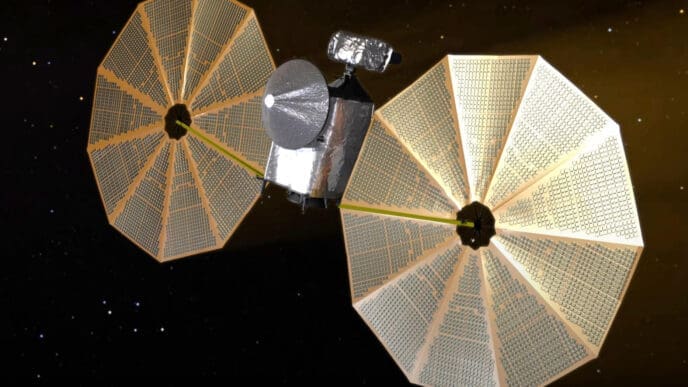Prepare for a thrilling interstellar adventure as NASA gears up for the launch of the unpiloted Roscosmos Progress 91 spacecraft, carrying a vital cargo of essentials for the International Space Station (ISS).
Scheduled to embark from Baikonur, Kazakhstan, this Soyuz rocket launch promises to deliver life-sustaining supplies to the ISS, ensuring continued scientific breakthroughs in space exploration.
Countdown to Launch
The clock is ticking as the Progress 91 spacecraft prepares for its mission to support the ISS crew. This unpiloted vessel is set to launch at 4:24 p.m. EST on February 27, from Baikonur Cosmodrome. Excitement is mounting as NASA provides real-time coverage.
The Progress spacecraft has long been a reliable partner in resupplying the ISS. With each launch, it brings not only necessary provisions but also a sense of connection between Earth and the orbiting station, fueling scientific progress.
Mission Essentials
What’s on board the Progress 91? Approximately three tons of crucial items, including food, fuel, and supplies, all intended to support the crew’s well-being and mission objectives.
These supplies are essential for ongoing experiments. They enable astronauts to focus on research that can’t be conducted on Earth, enhancing our understanding of space.
The Journey Begins
After launch, Progress 91 will spend two days traveling to its new home at the ISS.
This is not just a straight-shot flight. It involves precise calculations to ensure a smooth docking.
The spacecraft will autonomously dock to the ISS’s Zvezda service module aft port.
Each maneuver is critical and relies on expert planning and execution to ensure mission success.
Science in Motion
For more than 24 years, the ISS has been home to groundbreaking research. It is a hub for innovation, allowing scientists to conduct experiments beyond Earth’s limitations.
Astronauts aboard the ISS experience unique conditions. These conditions allow studies on human health, material sciences, and biology that aren’t possible on our planet.
The ISS serves as a critical platform for understanding how space affects technology and human life, paving the way for future explorations.
International Efforts
The collaboration between NASA and Roscosmos exemplifies international partnership in space.
Progress 91’s mission continues to strengthen ties. It’s a joint effort illustrating shared goals in space exploration.
Together, they propel advancements in science and technology while fostering international goodwill.
Such missions highlight the importance of cooperation in overcoming challenges to explore new frontiers.
Preparing for Future Missions
These missions aren’t just about resupply; they’re stepping stones to bigger ventures like the Artemis program, which aims to return humans to the Moon and explore Mars.
NASA’s commitment to the ISS extends beyond regular missions, using it as a platform to develop technologies beneficial for future deep space explorations.
The steady stream of missions like Progress 91 demonstrates how the ISS plays a critical role in preparing for monumental space journeys ahead.
Technical Precision
Progress 91 showcases cutting-edge technology with its autonomous docking capabilities. The spacecraft must flawlessly attach itself to the ISS, requiring precise execution.
The docking process involves sophisticated navigation systems and algorithms. Precision is key to ensure a smooth operation without complications.
Life Aboard the ISS
The ISS is more than a research lab; it’s a home for astronauts living and working hundreds of miles above Earth.
Supplies delivered through missions like Progress 91 make this possible, enabling astronauts to maintain their mission objectives.
With each delivery, the potential for discovery grows, as does the understanding of life in space.
Such missions ensure the continuation of studies vital to our long-term presence in the cosmos.
Convergence of Technology and Human Ingenuity
Located at the intersection of science, technology, and human innovation, the ISS is an unparalleled platform for discovery.
Research conducted onboard contributes significantly to scientific knowledge and technological advances.
Such endeavors are critical for preparing humanity for future deep space missions, including the highly anticipated Artemis program.
The Road Ahead
Looking forward, missions like Progress 91 serve as a gateway to the future of space exploration.
In the coming months, the ISS will continue to welcome these vital deliveries.
Each mission reinforces the potential of space as a unifying frontier for humankind.
This journey symbolizes more than just supply delivery; it’s a testament to human ambition to push beyond our earthly confines.
As Progress 91 sets forth on its autonomous adventure, the world watches a significant chapter unfold in the story of space exploration. This mission marks another step in humanity’s journey into the stars, further emphasizing the importance of collaboration in achieving our cosmic dreams.

